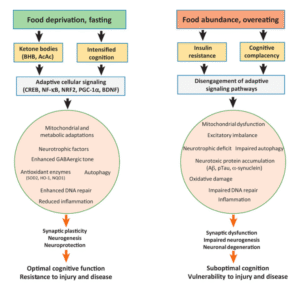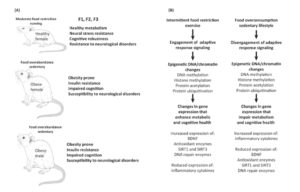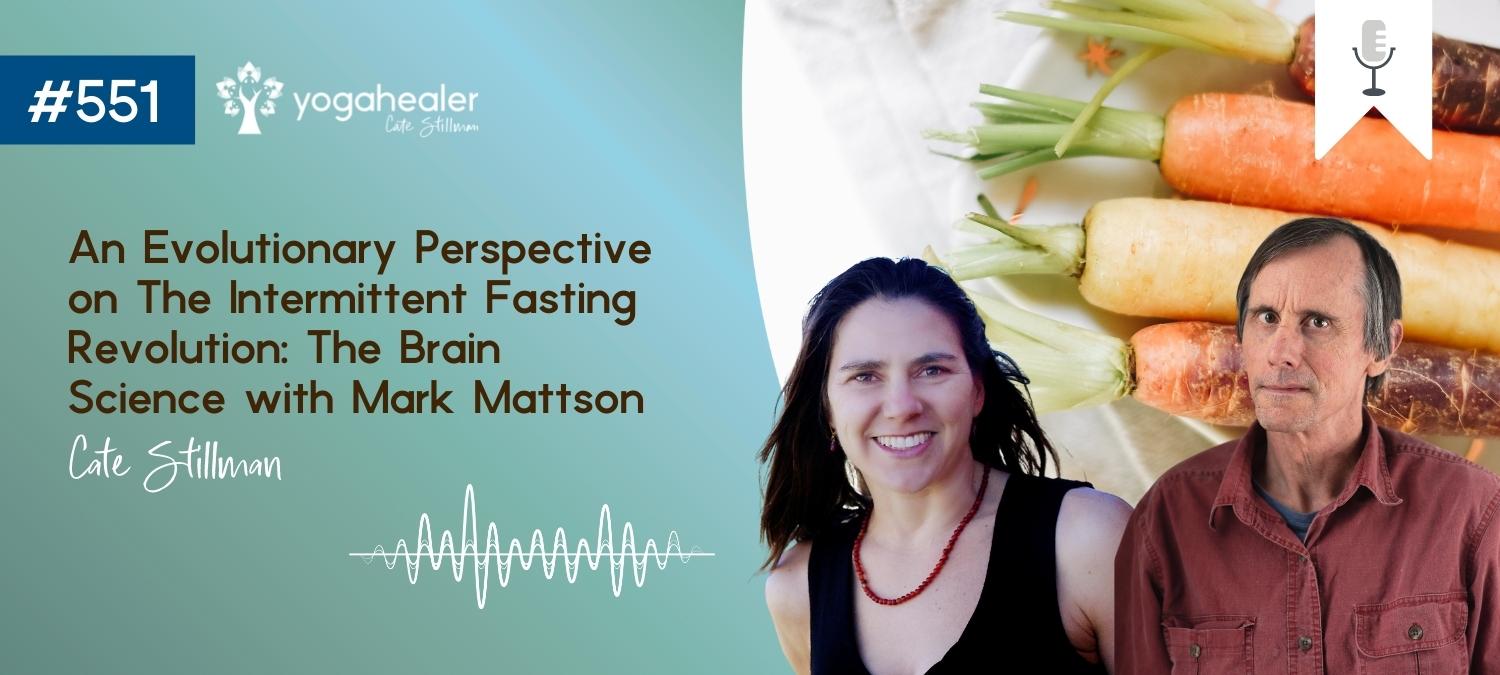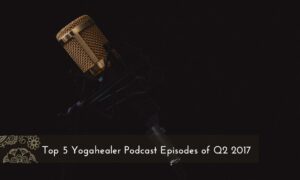Podcast Intro:
Most of us believe that eating three meals a day with a few snacks is the typical, healthy way to eat. But that is not always the case. Human bodies and minds developed to function well in circumstances where food was only available intermittently. In the primitive era, when we examine our ancestors’ eating habits, we can see that intermittent fasting was common—but eating three meals a day was not. In fact, Dr. Mark Mattson, a well-known neuroscientist, demonstrates that intermittent fasting is not only normal but also beneficial to our health.
Intermittent fasting has become increasingly fashionable in recent years, and scientists have been studying its long-term implications on physical health. In this episode, Dr. Mark Mattson joins us to talk about his studies on metabolic switching, calorie restriction, and the cognitive benefits of intermittent fasting. He also provides information for physicians and parents, as well as practical guidance on how to follow an intermittent fasting eating pattern.
What you’ll get out of tuning in:
- What is intermittent fasting?
- How does intermittent fasting affect the body and brain?
- What can someone expect to experience when they adopt an intermittent fasting eating pattern?
Links/CTA:
- Come grab while it’s hot!!!! Download your copy of Intermittent Fasting Tip Sheet here: Get Your Copy
- The Intermittent Fasting Revolution by Mark P. Mattson
- Diabetes in Control – Mark Mattson
Highlights:
- Obesity impairs cognition and increases the risk for some psychiatric disorders and dementias.
- Maternal and paternal obesity predisposes offspring to poor cognitive outcomes by epigenetic molecular mechanisms.
- Neural signaling pathways that evolved to bolster cognition in settings of food insecurity can be stimulated by intermittent fasting and exercise to support the cognitive health of current and future generations.
- Metabolic switching stimulates neural signaling pathways that bolster cognition.
Timestamps:
- 02:48 – 03:15 – Cultural Evolution and Human Brains Size Changes in the last 10,000 Years
- 04:29 – 05:04 – Food over Consumption
- 38:28 – 40:41 – How Pharmaceutical Drugs are Advertised and Perceived by the General Public
Quotes:
- “Similar to exercise, intermittent fasting takes time to adapt so that you’ll actually feel very good. Many people, if they get in shape, they’ll feel really good as long as they keep exercising. If they stop, their mood will start to go down.”
- “Physical exercise and intermittent fasting have similar effects on the brain and body. Obviously, exercise has a more beneficial effect on your muscles and cardiovascular system. Then, from the standpoint of the brain, those intermittent fasting and exercise, improve learning and memory and protect the brain against dysfunction during aging”
- “Based on many studies, fasting for 16 hours is enough to engage or stimulate cells to go into this stress resistance, conserve resources mode. So people have breakfast, lunch and dinner and a snack. They’re not fasting for 16 hours because the only time they’re not eating is when they’re sleeping.”
Guest Bio: Mark Mattson

Mark Mattson is the former Chief of the Laboratory of Neurosciences at the National Institute on Aging and is now on the faculty of Neuroscience at Johns Hopkins University School of Medicine. His research has advanced an understanding of the cellular signaling mechanisms that control the formation and plasticity of neuronal networks in the brain, and cellular and molecular mechanisms of brain aging and neurodegenerative disorders. His research has also elucidated how the brain responds adaptively to challenges such as fasting and exercise, and he has used that information to develop novel interventions to promote optimal brain function throughout life. Dr. Mattson is among the most highly cited neuroscientists in the world with more than 900 publications and 180,000 citations. He was elected a Fellow of the American Association for the Advancement of Science and has received many awards including the Metropolitan Life Foundation Medical Research Award and the Alzheimer’s Association Zenith Award.




